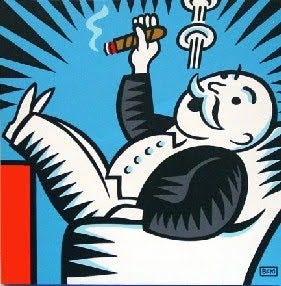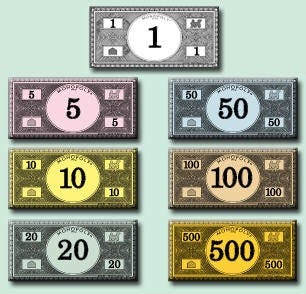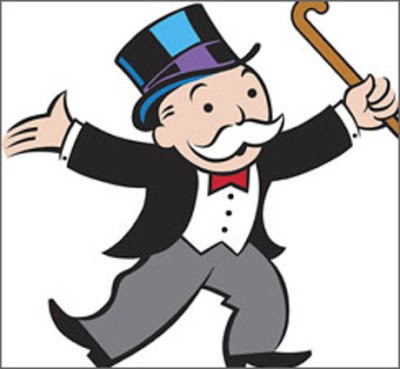Hayek, Wrong Again
Friedrich Hayek’s The Road to Serfdom attempts to make the case that every societal ill, no matter what the true source, is the result of collectivist planning and economic control. Hayek spends the book bemoaning the loss of the paradisal individualism that he believes was the driving factor to the great strides of the Industrial Revolution and the advances of the nineteenth century, and warned that unless the nations of the West returned to this individualist creed, the specter of fascism would rise from the ashes of World War II. There are many instances of philosophical folly in the book, but one that truly stands out is the blaming of monopoly capitalism on economic control. Blaming the rise of the monopoly capital economic system we are currently living in on socialism and collectivism shows Hayek’s incomprehension of the very fiscal principle he endorses- free market capitalism.
The ideology of individualism espoused by Hayek is simple. It is impossible to care for everyone else in the world, thus to try is unimportant. Self concern is the pillar of the great western society that Hayek sees winning the war, leading to such virtues, of course unheard of in any other cultures, as “independence and self reliance, individual initiative and self-responsibility, the successful reliance on voluntary activity, noninterference with one’s neighbor and tolerance for the different and queer, respect for custom and tradition, and a healthy suspicion of power and authority” (Hayek, p. 219). And if, as Hayek asserts, individualism is the genesis of such virtuous beliefs, then an economic system designed on such a philosophy is sure to be a genesis in itself of a free, just and tolerant commercial program of policy.
Thus free market capitalism, an unregulated sector of life in which everyone plays by the set rules and competes over their share of the pie, is seen by Hayek (and his conservative disciples of then and now) as the most even and fair methodology of commerce. The free market, it is alleged, will lead to the most equitable and fair outcome. Choice is paramount for Hayek, the choice of the consumer as to what he or she shall consume, the choice of the worker as to where and for whom to work, or the choice of the capitalist as to what aspect of production to expend capital on. Any interference in this liberty is of the most despicable type, and the result of the “planners”, the collectivists, the socialists. It is such an infringement upon self determination, this regulative meddling in the workings of the economy, that it takes away the independence of everyone in society. Perhaps Hayek puts it better when he says, “the economic freedom which is the prerequisite of any other freedom cannot be the freedom from economic care which the socialists promise us and which can be obtained only by relieving the individual at the same time of the necessity and of the power of choice; it must be the freedom of our economic activity which, with the right of choice, inevitably also carries the risk and the responsibility of that right” (ibid., p. 133).
Hayek deals with the problem of the development of monopolies in the capitalist sphere, which in itself would appear to disprove his hypothesis of the free market leading to a competitive Eden, by placing the blame for its establishment squarely on the shoulders of the state. Hayek is not completely wrong on this account. Monopolies tend to spring up by virtue of the reciprocal influences of state and industry, the one granting corporate charters, protectionism and subsidies, and the other returning the favor by using the prestige of wealth and power to promote the preferred candidates and parties. Although the consolidation of capital and means of production that are inherent to the evolution of monopoly and the absence of competition in such an environment are determining elements in such growth, Hayek has a point when he pronounces, “monopoly is frequently the product of factors other than the lower costs of greater size. It is attained through collusive agreement and promoted by public policies” (ibid., p. 92–93).
Now, the development of monopoly capital is not solely the result of the state’s influence, despite what Hayek would have the reader believe. In fact, as monopolies undergo their metamorphosis from large firms to utterly controlling interests in the market, this change is due in large part to the lack of regulation and control of their actions from any larger body. The free market, in theory, is such that it denies any interference and thus promotes competition. But the reality is far more complex. In truth, the lack of regulatory interference allows large firms to absorb the smaller, growing ever more obese and powerful, and, in so doing, denying the consumer the very freedom of choice that the free market ostensibly provides. With no authoritative presence to ensure the rules are obeyed and played by, the natural impulse of capital is to win the game at all cost. This commitment to victory is a hallmark of the individualist, not the collectivist.
If Hayek’s theory of monopoly were correct, the outcome of the post-war years would have been far different. After all, Hayek said, “the problem of monopoly would not be difficult as it is if it were only the capitalist monopolist whom we have to fight” (ibid., p. 207). It follows that as state interference waned and dissipated in the wake of the war’s aftermath, a process which took many years, the state monopolist would have been marginalized and outbid for consumer favor by the more robust and powerful private sector. And it furthermore follows, in this line of reasoning, that with the laxation of regulation, which has been sped up to unprecedented heights in the past three decades, would lead to a freer, more competitive and just marketplace. This narrative is pleasant, especially for those who wish to maintain the status quo of our political and economic state of affairs, but, as with all mythologies and theories when they encounter the plain reality and facts, this narrative is untrue.
Hayek’s observations on many aspects of the nature of monopoly are true. It is stifling to competition and denies the freedom of choice to the consumer and capital expansion to the entrepreneur. Monopoly is, indeed, at least partly the consequence of state interference in the market for the benefit of the powerful and rich. But for Hayek to allege that all this is the result of over-regulation, of collectivism and socialism, is simply wrong. It is a result, not the the antithesis, of unrestrained free-market capitalism that monopolies develop and grow. This is nowhere more obvious than in the corporatization of our economy, which accelerates with every loosened regulation and every deference to industry over the public by the state. Hayek may be right to a point- but only to a point.








